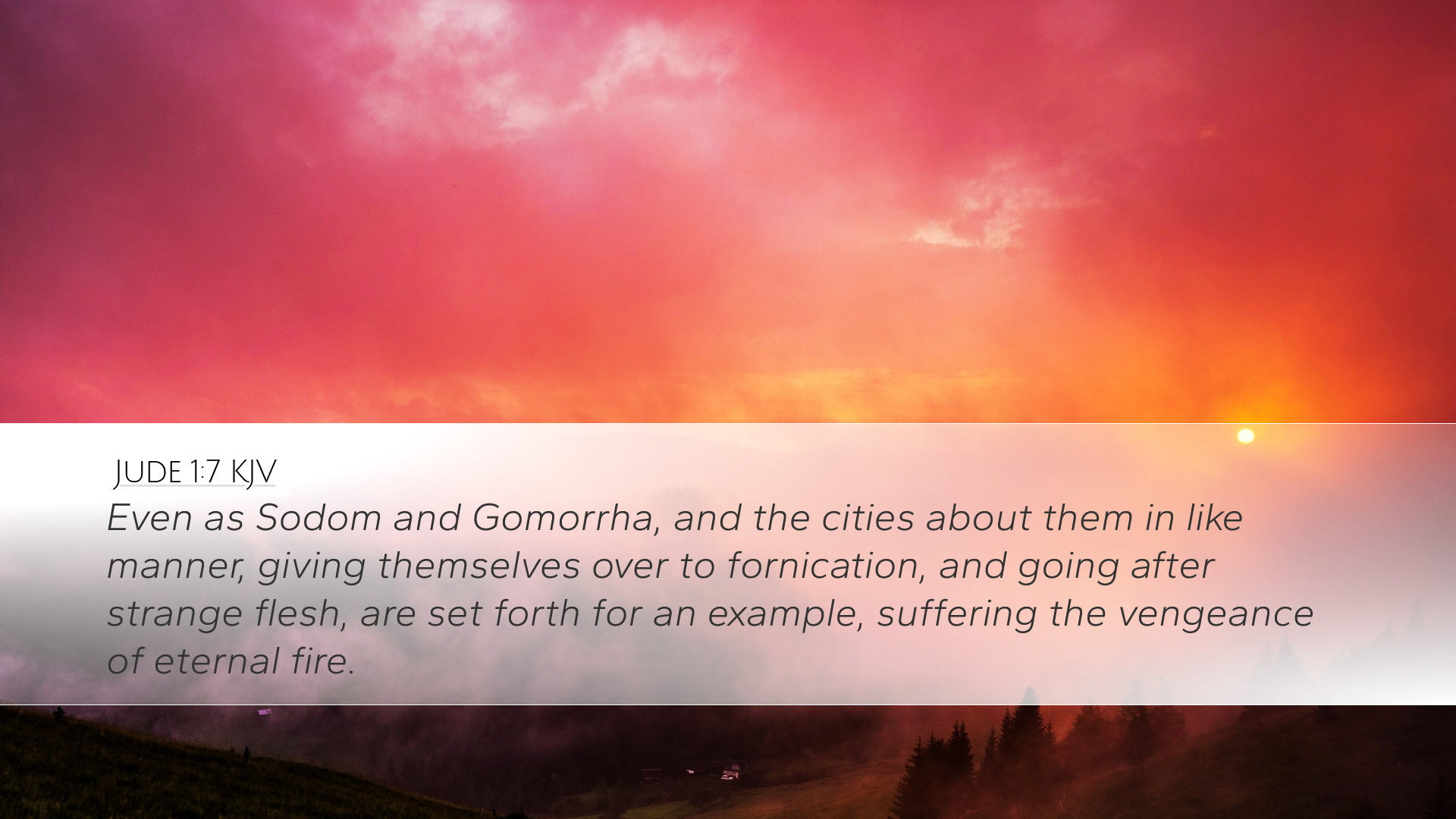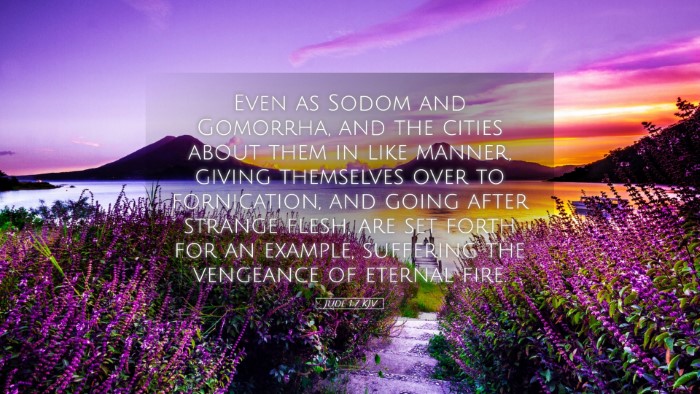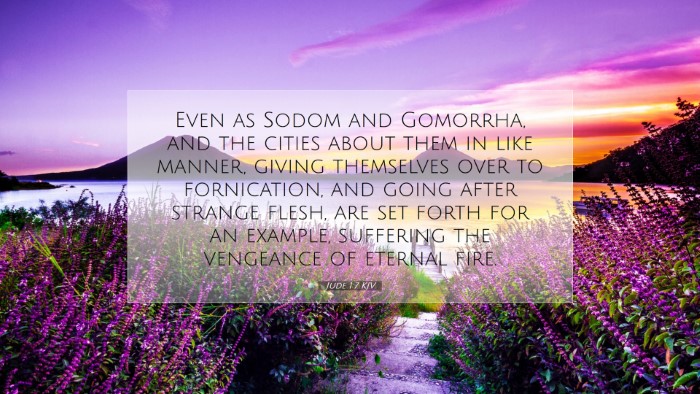Commentary on Jude 1:7
Jude 1:7 states: "Even as Sodom and Gomorrha, and the cities about them in like manner, giving themselves over to fornication, and going after strange flesh, are set forth for an example, suffering the vengeance of eternal fire."
This verse serves as a sober reminder of the consequences of immorality and the judgment of God upon nations and communities that deviate from His ordainments. The reference to Sodom and Gomorrha resonates with the theme of divine retribution for sin and the seriousness of moral decay.
Interpretive Overview
Jude draws a parallel between the sin of false teachers and the notorious cities of the Old Testament. By comparing the moral depravity of Sodom and Gomorrha with contemporary issues, Jude underscores the timelessness of God's judgment and the perennial nature of human sinfulness.
Contextual Analysis
Historical Context: Sodom and Gomorrha were emblematic of extreme wickedness, renowned for their sexual immorality and arrogance against God (Genesis 19:4-5). Jude cites them as an archetype of judgment and destruction, imploring Christians to take heed of their own spiritual integrity.
Literary Context: The letter of Jude addresses the infiltration of false teaching within the church, urging believers to contend for the faith. The reference to these cities serves as a stark warning to those who stray from the truth.
Theological Insights
The theological implications of Jude 1:7 are profound. It highlights the doctrine of judgment, emphasizing that God's wrath is not absent but is actively reserved for impenitent sinners. This echoes the sentiment found in Matthew Henry's commentary, where he articulates God's righteous justice against those who pervert His design for human sexuality.
Human Responsibility: The verse speaks to the idea of human agency. The inhabitants of Sodom and Gomorrha are portrayed as willingly surrendering themselves to their desires. This emphasizes a key biblical principle that individuals are accountable for their choices and actions.
Divine Justice: Albert Barnes notes that the "vengeance of eternal fire" serves as both a literal and metaphorical reminder of the finality of God’s judgment. The perishing cities exemplify the fate awaiting those who reject divine authority, living according to base desires rather than God's intent.
Moral Considerations
The moral teachings arising from this passage implore readers to evaluate their own lives against the backdrop of biblical standards. Adam Clarke emphasizes the need for believers to remain vigilant against temptation and immorality, paralleling the moral collapse observed in Jude's examples.
-
Call to Holiness: The moral fabric of society is at stake when the church fails to uphold holiness. Believers are called to embody the standards set forth in Scripture, which includes both purity and righteousness.
-
Avoiding Compromise: Christians are warned against the subtle encroachments of sin within their communities. The example of Sodom and Gomorrha serves as a haunting reminder of the gravity of moral compromise.
Practical Applications
For pastors and leaders, Jude 1:7 fosters a crucial examination of the teachings disseminated within the church. It challenges shepherds to remain vigilant over the doctrinal integrity of their congregations.
Preaching Holiness: Regular teaching on the serious implications of sin, including the necessity of repentance, is essential in contemporary preaching. The account of Sodom and Gomorrha can be employed as a stark contrast to the holiness God requires of His people.
Fostering Accountability: Establishing frameworks within the church that promote accountability among members can help guard against moral degradation. Mutual encouragement in righteousness should define the Christian community.
Conclusion
In conclusion, Jude 1:7 stands as a powerful testament to the consequences of rejecting God's design. Through the lens of public domain commentaries, we glean a deeper understanding of the persistent relevance of this text for today's believers. As we reflect upon the dire judgment faced by Sodom and Gomorrha, may we, today, hold fast to the call for holiness, contending for the faith with unwavering commitment.


